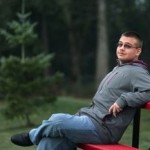
Photo by: Mark Mulligan / The Herald
By Gale Fiege, http://www.heraldnet.com
Q: What’s it like to attend Heritage High School?
A: It’s a small school in the Marysville School District with about 100 students. Our teachers are really engaged. They know you and what you are doing. They want you to succeed. Each student gets attention. Like any high school, we have six periods a day of the usual subjects. The only thing different is that we focus a lot on Native American culture. We don’t have it right now, but one of the classes offered is our native Coast Salish language, Lushootseed.
Q: What is your tribal heritage?
A: My dad is Tulalip, my mom and grandmother are Rosebud Sioux, and my grandpa is Alaska Native. I spent a lot of my childhood in Tacoma with my grandparents and went to Chief Leschi Schools, which are operated by the Puyallup Tribe.
Q: Why is cultural education important?
A: For me, what we learn at Heritage is another perspective, another way of looking at the world. We focus on the oral history of native people, not just what you get in classroom history books. I am thankful for the elders who have passed down the stories, and I’m glad we are a culturally active school.
Q: The staff at Heritage say you are very helpful and hard-working. Why is this important to you?
A: I like to take time to help people and it gives me something to do.
Q: What are your regular school-related activities?
A: I like to help in the school office. I’m the ASB treasurer, and I help with concessions at our school basketball games. The money we raise goes to our student body. Basketball is very popular in the community, especially when we play the Lummi Nation School, Muckleshoot Tribal School or Neah Bay High School. Then it’s about pride in our tribes.
Q: Do you have a job?
A: I’ve worked for Tulalip Tribes. This past summer, I got experience working with the Quil Ceda Village grounds maintenance crew. It gave me an understanding of how that department works. And I pulled a lot of weeds from 88th up to 116th Street.
Q: What do you want to do next year?
A: I hope to enlist in the Coast Guard. I would like to make a career of it and hope that I can work in Washington. I’ve already talked to a recruiter. My other idea is to become a member of the State Patrol or the Tulalip Police. Something like that. Just so I can help people. For me, it’s all about giving back to the community.
Q: Have other people in your family been in the service?
A: My dad was in the Marine Corps, my grandma in the Air Force, my grandpa in the Army and my cousin in the Coast Guard. My dad is encouraging me to go into the Coast Guard.
Q: It sounds like your family is important to you.
A: Yes, I help my sister by taking care of my 3-year-old nephew. I take him to the park and stuff like that. We have fun.
Q: What else do you do outside of school?
A: I like to ski, golf, play tennis and basketball and work out at the Marysville YMCA. I played football at Lake Stevens High School when I first moved up here. I miss football.
I also listen to music. All kinds. I like rap, country, classic rock and when I worked as a prep cook in the kitchen at the casino, I learned to like the Mexican music that the Hispanic guys played.
Q: What’s keeping you busy right now?
A: That would be my senior project. We have to answer the questions of, Who am I? Where am I going? How will I get there?
Q: What is your favorite class this year?
A: For me, that’s easy. It’s humanities with my teacher Maria Benally. She pushes me to excel in my work. We’ve been talking a lot about the issue of sovereignty. For example, we learned that Hawaii’s indigenous people were taken over by the United States.
Q: What is your favorite book?
A: It’s “Night” by Elie Wiesel about his experience in the Nazi concentration camps. That was a good book.
